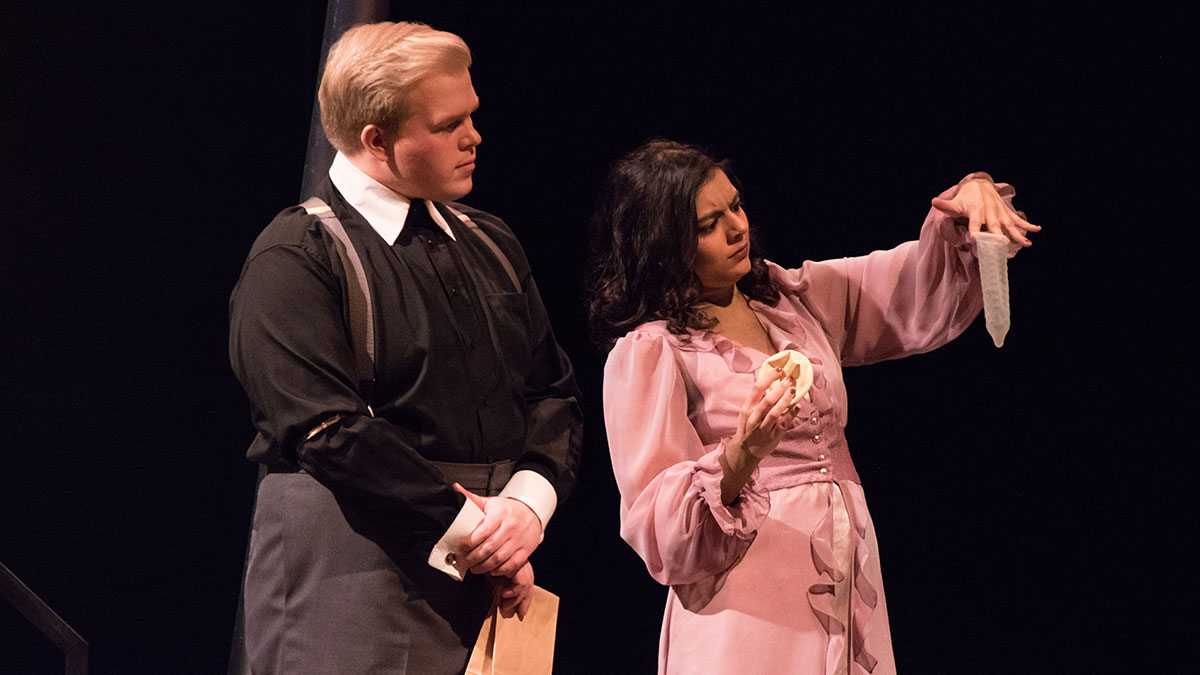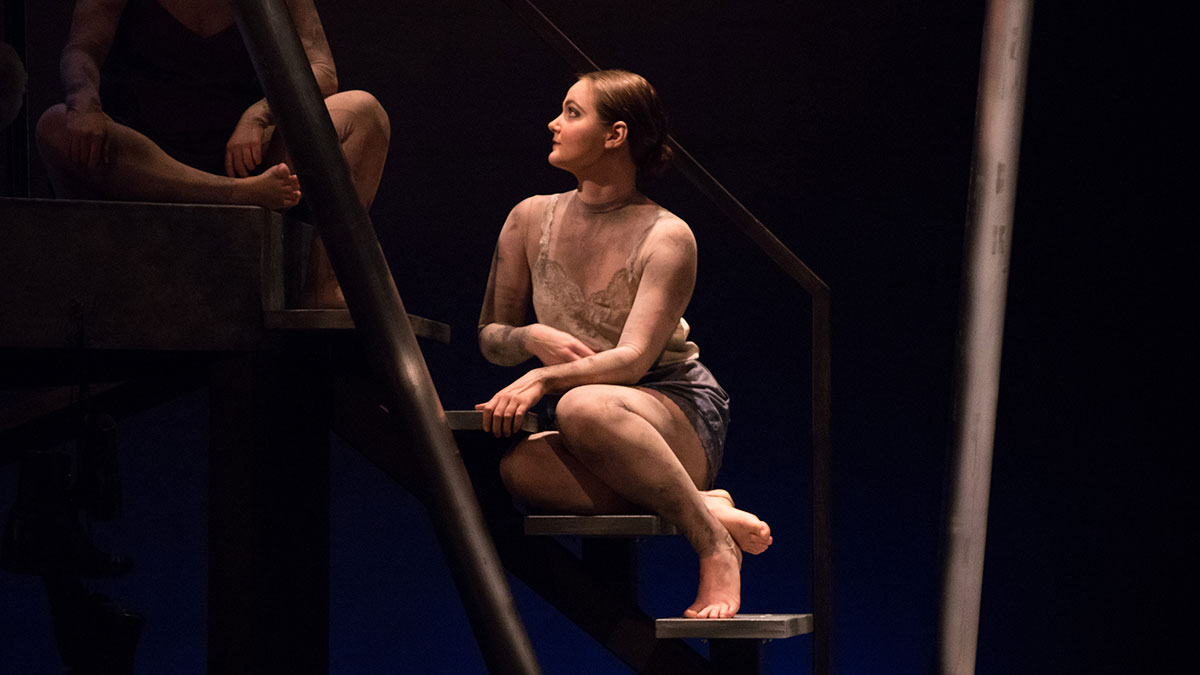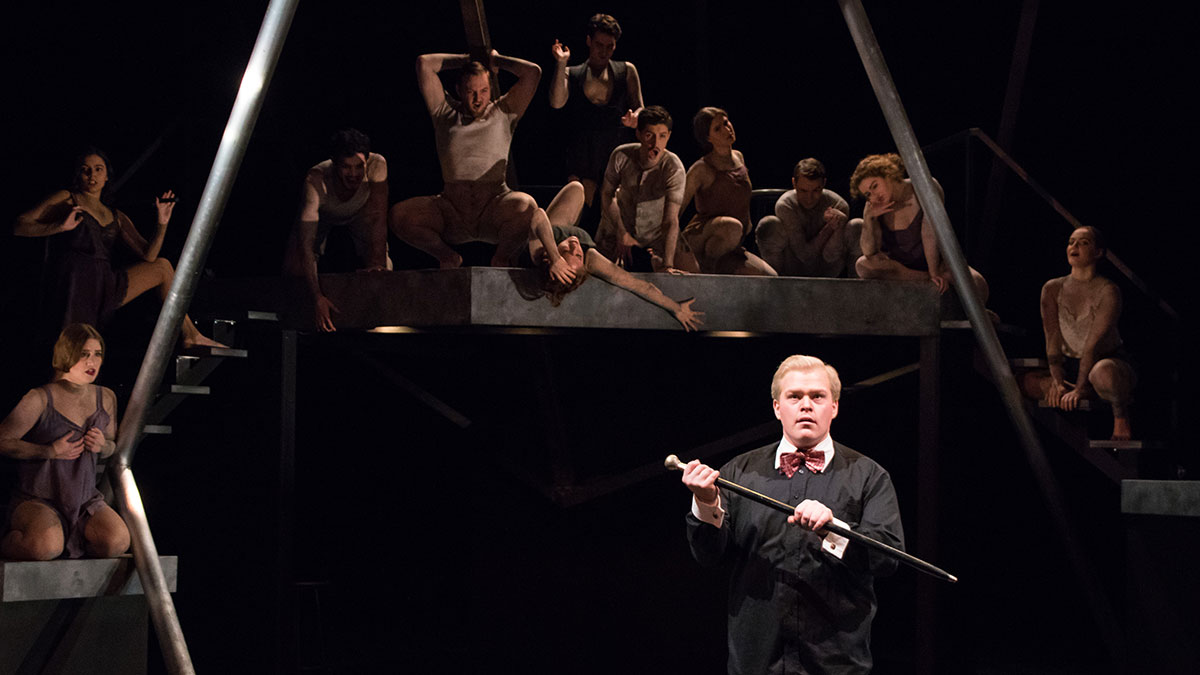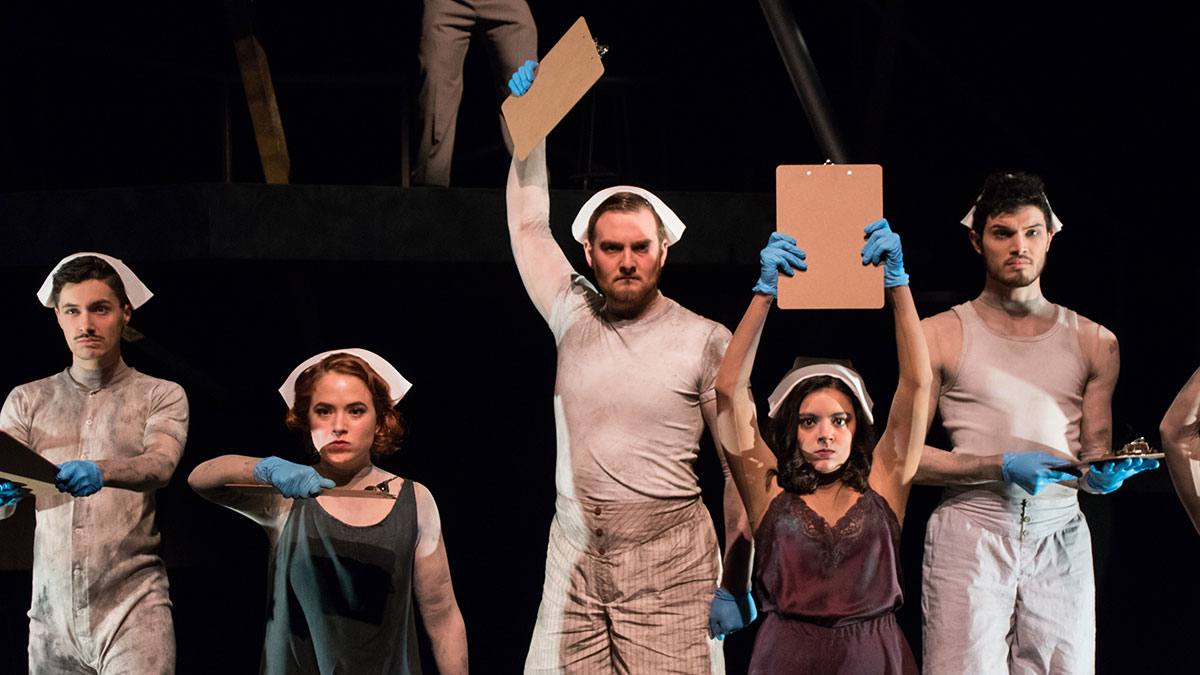Kabaret investigates the history of birth control
 Christina Varvis
Christina VarvisKaufman Kabaret
Thursday March 24 to Saturday April 2 at 7:30 pm with a matinee on March 31 at 12:30 p.m.
U of A Studio Theater at the Timms Center
Hannah Moscovitch
Kathleen Weiss
Sarah Feutl, Grace Alving, Corben Kushneryl
$12 for students
Let’s talk about sex baby. Audiences encounter sex politics and sexual freedom when the dark sides of birth control take centre stage. UAlberta’s Studio Theater intertwines the controversial emergence of birth control with risky staged sex in their premiere of Canadian playwright Hannah Moscovitch’s original play, The Kaufman Kabaret.

The main story arch follows Alvin Ratz Kaufman, a wealthy industrialist from Kitchener, Ontario, who became concerned about his impoverished workers birthing children they couldn’t afford. Kaufman, like many of Moscovitch’s characters, are based on individuals who played real roles in the Canadian birth control movement of the 1930s.
Even though the play is set 80 years ago, director Kathleen Weiss pointed to its themes of sex, politics, and feminism to explain its ongoing relevance.
“The moral questions are compelling. It’s something students are really interested in, care about, and want to talk about,” says Weiss. “The play is set in 1936 and you think that all this stuff has long been worked out, but it actually hasn’t.”
“Even in my generation, we take birth control for granted. We don’t think of it as something that wouldn’t be available,” Weiss explains. “But women (in that time) would have child after child without being able to have any control or make any choice about that.”

One of the few actors not portraying a historical figure is Sarah Feutl, who plays Celeste Duval and Grace Alving. In The Kaufman Kabaret, Alving is the head of the Women’s League and presents what Feutl describes as an interesting counter-argument to birth control.
“In that society, after the women have had two or three kids, they’re allowed to ask for marital continence — they tell their husbands they don’t want to have sex anymore,” Feutl says. “With birth control, it would be worse for women because they would have to have sex with their husbands whenever they ask, and it takes away their right to choose.”
For Weiss, the layers within this politically charged production are meant to shock. She hopes audiences will leave with questions.
“It’s certainly a play that’s very engaging and full of humor, (but) ultimately I think it will make the audience uneasy,” Weiss says. “It’s the kind of play that will make audiences squirm.”

Besides, it draws upon complex issues still present in today’s society. “It raises really important questions: questions about sex politics as a whole and about women having the right to control their own bodies,” explains Weiss.
Feutl echoes Weiss’ words, saying the issues of sexual freedom being discussed in the play will resonate strongly with students at the U of A.
“I hope it’s not a show that you’re passively watching, but a show that you’re participating in” says Feutl.
“Even if you’re an audience member sitting in your seat, there’s a difference between just seeing it and participating in it, and I would hope this show asks audience members to participate.”




